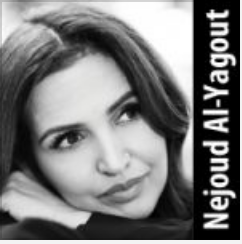

If we are going to tax people for polluting our beaches, that is noble, but if we are going to tax expats alone, something is inherently misaligned within us. Laws are not exclusive. Fine us all for leaving plastic on our shores, for throwing cigarettes out of car windows. Fine families - local and expat -whose children throw candy wrappers on sidewalks. But when we say tax the expats, we create a divisive society of us vs them and polarize people who leave their homes for a better life only to be demeaned and ostracized.
I will reiterate this again: Anyone who lives in Kuwait regardless of their race or nationality or religion is Kuwaiti.
Taiye Selasi, author of Ghana Must Go, was born in England and raised in the United States. Her father was born in the Gold Coast, raised in Ghana and lived in Saudi Arabia for three decades, while her mother, also born in England like her, hailed from Nigeria but lived in Ghana. A critic once claimed that Selasi cannot represent Ghana "when she's never known the indignities of traveling abroad on a Ghanaian passport". And Selasi acknowledged that however a bitter pill that may have been to swallow, it was an accurate criticism.
Another time, when someone introduced her as a multinational, she thought Nike, a globally recognized footwear company, is multinational. But she is a human being. And then, after an enlightening discussion with Colum McCann, who told her that all experience is local, she had her epiphany. In "Don't Ask Where I'm From, Ask Where I'm A Local", a Ted Talk, Selasi, in a question obviously inspired by McCann, challenged her audience by saying: "What if we asked, instead, of Where are you from? - Where are you a local?" She insists, "[t]his would tell us so much more about who and how similar we are."
Imagine that: The next time you meet someone, you ask him or her: Where are you a local? The question "Where are you from?" which holds so many stereotypes and racist implications would disappear as we leave behind notions of nationalism and tribalism and instead come together with locals of various backgrounds according to a communal bond.
If we observed people according to a shared experience within a specified location drawn by man-made borders, we would not have laws catered to the benefit of locals or at the expense of expats. All the people in Kuwait would be considered locals. And this is how we should live - as unified members of shared and relatively similar experiences. Whether we are from this country or that country will not matter when we are sitting on a plane and we meet someone who, like us, lives in Kuwait, but is not necessarily from Kuwait. We will bond with our fellow passenger based on a notion of common ground (literally and figuratively).
Come on Kuwait, let's wake up and show the world what it means to be a microcosm of our planet. Let's show the world that racism and arrogance, like borders, are imposed upon us and play no role in the evolution of our consciousness and personal and collective identities. We cannot afford to blame everyone except ourselves for our collective mess. We cannot afford to think we are superior in any way.
Because we are not. Life is cyclical and what goes around comes around and what is plenty in one cycle is scarce in another. Isn't it time we work with expats - I mean fellow locals - to create an inclusive society that flourishes as a community? The beauty of Kuwait's diverse society will rest on us saying yes to a cosmic invitation to coexist.
By Nejoud Al-Yagout



